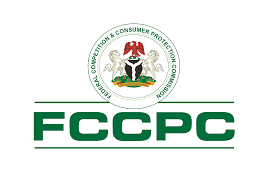Chukwuma Umeorah
Executive Vice Chairman/Chief Executive Officer of the Federal Competition and Consumers Protection Commission (FCCPC), Mr. Tunji Bello, has revealed how activities of some persons contributes to food inflation ravaging the country.
Bello who spoke, yesterday, during a town hall meeting with industry captains, Micro, Small and Medium Enterprises (MSMEs) , market leaders, farmers, transporters and service providers in Kano, yesterday, said the commission’s investigators discovered that some unscrupulous produce merchants were mopping up newly harvested grains and stashing them in warehouses to create artificial scarcity, thereby worsening the food inflation.
“Without caring for the consequences of their action on fellow countrymen and women, some of these unscrupulous actors go as far as taking some of the food items they had mopped up from the farmers or the markets and smuggled them across the borders to sell at premium, thereby endangering our national food security,” he said.
Addressing stakeholders in the ancient northern city, the FCCPC boss also listed price fixing and creation of artificial barriers in the form of entrance levy by market associations among other unethical practices.
The event was sequel to the interactive sessions earlier hosted in Abuja and Lagos by FCCPC for stakeholders in the production and distribution chain in its renewed advocacy to curb anti-consumer practices across the country.
Bello solicited the cooperation of the Kano stakeholders to curb the unwholesome practice in the national interest. “Don’t get us wrong; we are by no means saying everyone is guilty here. We only have a few bad eggs involved in such unethical practices. It is, therefore, our collective responsibility to work together to achieve reasonable pricing of goods and services, especially at a time the country is undergoing bold economic reforms which may bring temporary discomfort today but will definitely usher in a better economy for us tomorrow,” he said.
Though the FCCP Act prescribes stiff penalties ranging from heavy fines to jail terms for offenders, Bello told the Kano stakeholders that the commission chose to first explore the option of dialogue in the spirit of democracy.
Listing the gains of earlier engagements in Abuja and Lagos, Bello noted that President Bola Tinubu had already responded to some of the popular yearnings in form of new policies, pledging he would similarly convey the views of the Kano stakeholders to the appropriate quarters.
“We have a very listening president in person. He feels for the people and shares their pains and is ever willing to go the extra mile to take measures to cushion the effects of the hardship the ongoing economic reforms may bring.
“The Federal Government has also commenced the implementation of zero Value Added Tax (VAT) and excise duties on pharmaceutical products and medical devices. Just as a number of taxes have also been removed to assist micro, small, medium enterprises as well as taxes being removed from public transportation.”
Bello urged the stakeholders to be patriotic by sharing the gains from the concessions being made by the government with the consumers.
“For instance, when the government assists the operators of public transportation with easy credits to convert their vehicles from petrol to relatively far cheaper CNG, we don’t expect them to charge the same fares as those who buy petrol,” he added.
Earlier, FCCPC Executive Commissioner Operations, Adamu Abdullahi, said the commission was in Kano to enlighten the people on the problems in the production of goods and services.
He said these include artificial scarcity, inflation created by marketers and hiding behind insecurity and high prices of oil in the country.
“There are challenges of insecurity in the country, rise in the price of fuel and high price of foreign exchange, these are not enough reasons for goods and services to be high and scarce. If these things exist, our handiwork also does more. It is the marketers that create artificial scarcity and make goods expensive at the point of retail. Even the issue of insecurity is not enough to make things as expensive and as scarce as they are today. Farmers now produce cash crops and very little of food crops because they are in high demand across the borders. Dangote refinery has come on board, but the prices of oil have gone even higher. On this issue we have to understand what the government is doing. I assure you that everything will come down, whatever peaks will definitely come down,” he said.
